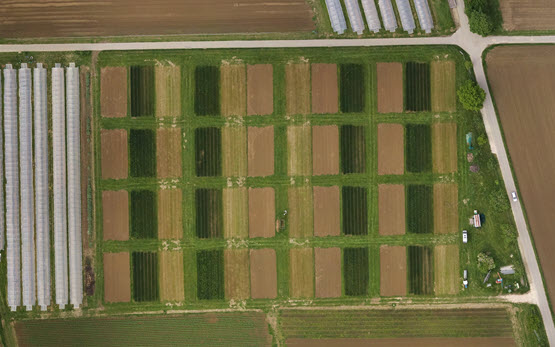A joint study of Agroscope and FiBL in collaboration with ETH Zurich was recently published in the journal Scientific Reports. Data from forty years of research highlight ways in which organic farming could evolve.
The study is based on the results of a globally unique experiment dubbed the ‘DOC trial’. The long-term outdoor trial focuses on biodynamic (D), organic (O) and conventional (C) cultivation systems. Since 1978, these three systems have been compared scientifically with each other on an experimental field in Therwil in the Canton of Basel-Landschaft.
Focus on nutrient cycles and plant breeding
“The potential for the further development of organic farming lies above all in closing inter-farm nutrient cycles and making significant progress in plant breeding”, says Agroscope researcher and head of trial Jochen Mayer. “This includes the recycling of phosphorus and nitrogen, for example, from food waste or wastewater. We also recommend diversification strategies in plant cultivation, such as mixed crops, undersown crops or strip cropping, ideally with perennial crops”.
Further information can be found in the FiBL press release and in the links below.







